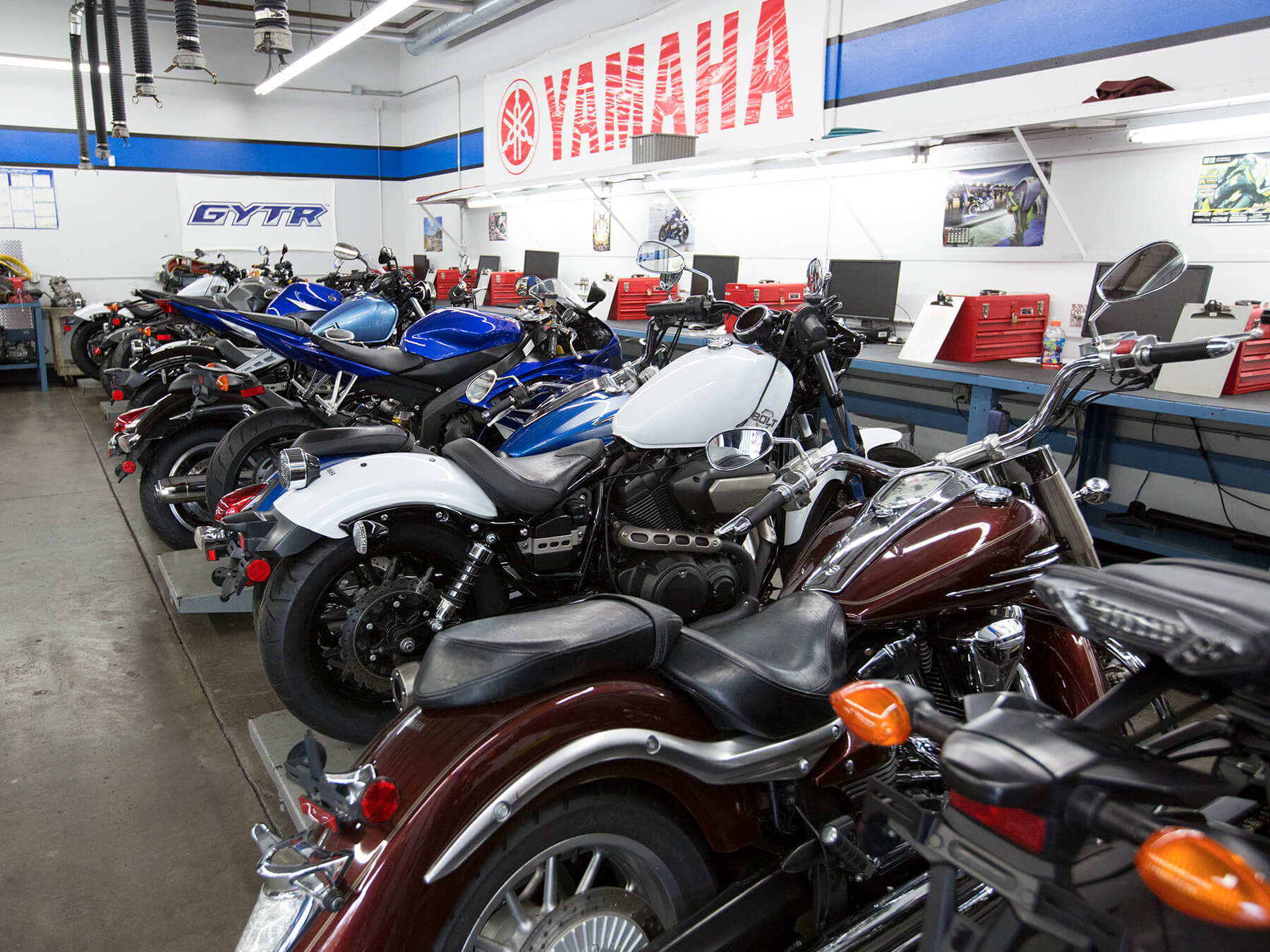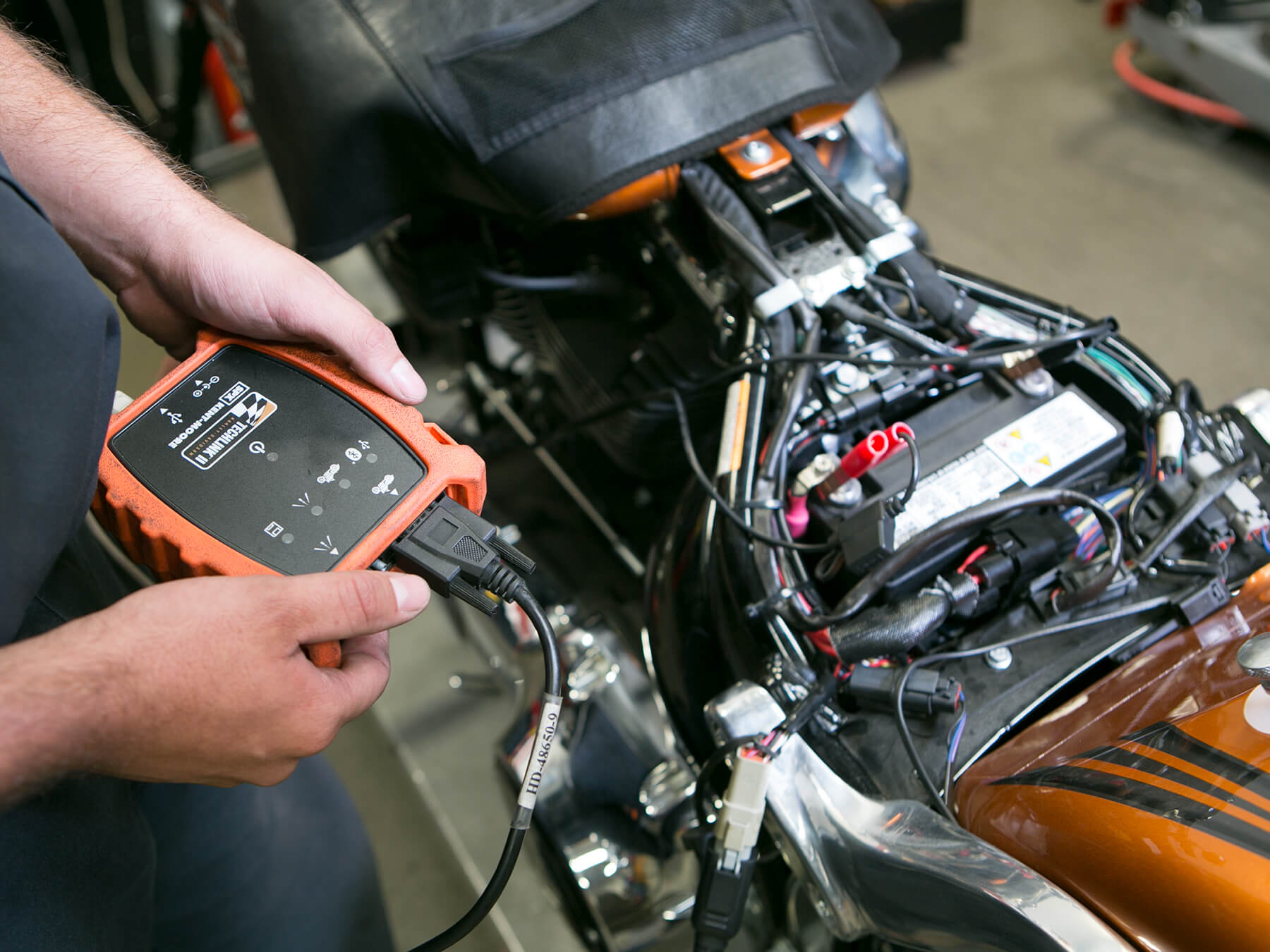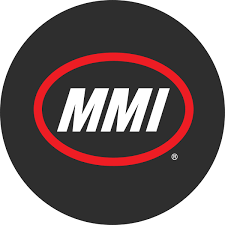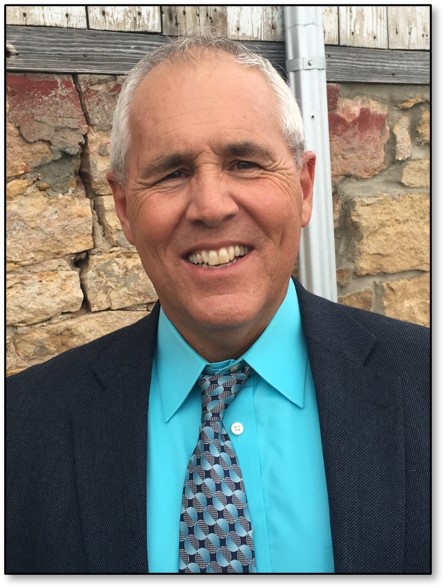Bob Martin: Today’s broadcast is the first in our monthly series of career podcasts. Today’s focus will be transportation careers. Joining us today is Dr. Steven Coyle, the national director of counseling and academic relationships at Universal Technical Institute. Today, we’d like to discuss motorcycle mechanic careers. As a leading provider of education for motorcycle mechanics, we couldn’t think of a better person to call in to talk to than Dr. Steven Coyle with Universal Technical Institute. Let’s first start by telling our audience a little bit exactly—as you can best explain it, Dr. Coyle—what is a motorcycle mechanic, and what do they do? |
Steven Coyle: Well—first of all, thank you for having me today. The primary role of a motorcycle technician is basically to maintain and service power sport vehicles and equipment—things like motorcycles, both street and dirt cycles, all-terrain vehicles (or ATVs, as we call them), the side-by-sides, the personal watercraft, snowmobiles. All of this, to ensure optimal performance and customer satisfaction with those products. |
Lee Doubleday: All right, Dr. Coyle, this is Lee. I’m talking to Dr. Steven Coyle, national director of counselor and academic relationships at Universal Technical Institute. Something that I’ve seen in the BLS data is that they project that by 2030 there is going to be a need to hire over 15,000 motorcycle mechanics across the United States. Now is this something you’re seeing in the industry as well? |
Steven: Oh, my gosh, it’s excellent. Many counselors and educators tend to think that your motorcycle is just a hobby, but it is a very lucrative career. The Bureau of Labor Statistics tells us that by 2026, which is not very far away, it’s projected there will be a need to hire over 19,000 motorcycle technicians across the country. And I suspect that number will grow as—because of COVID and all the things have happened, we’ve had a lifestyle change. And so more people are getting outdoors, outside, doing things there because they feel safer. So, I imagine that number will go up. |
Lee: Wow, that’s an interesting point about how COVID-19 has affected the industry. But it seems like—with motorcycle technicians being in such high demand—it seems like something worth getting an education in. So, a three-parted question for you. Number one, should someone go to school to learn how to become a motorcycle technician? Number two, what does a typical motorcycle technician program look like? And number three, how long is a typical motorcycle mechanic program? |
Steven: Okay. Well, question number one, absolutely. I mean, the power sports industry has many opportunities for well-trained entry-level technicians looking for a great career. And you notice I say well-trained because, really, the shade tree mechanic days are over. These are highly technical equipment. We tend to think of cars and trucks as becoming more computer-oriented, but motorcycles have done the same thing, too. The programs that we offer at MMI, we begin with the core courses that teach theory and fundamentals, which is very important. Theory and fundamentals of engines, transmissions, spinal drys, electrical system, chassis suspension, vehicle maintenance—all of these things that are very important. Getting into the background, it’s important to know the history of this area. |
Then once the core courses are completed, students then move into the OEM. OEM stands for original equipment manufacturer. There is definitely a difference between what we call OEM and aftermarket. Aftermarket is oftentimes cheaper, but a lot of times, these machines, they need the OEM—the original parts—in order to function correctly. So, then these courses are supported by six major motorcycle brands. And the brands that we cover are BMW Motorrad, Harley-Davidson, Honda, Kawasaki, Suzuki, and Yamaha. And as far as the length of time, a student can complete the motorcycle training in less than a year. In fact, our shortest program is 42 weeks long. |
Lee: Wow. |
Bob: Well—this is Bob again—Dr. Coyle, you got my attention. You got my interest. I’m very interested. Now, when I go—I’m a parent or I’m a student and I’m going out and I’m looking at a tour, tour of a campus that offers this particular program because I’m excited. I want to do this. It’s a passion. It’s a passion. What should I be looking for? It seems like a program like this is going to need really updated equipment, modern equipment. So I’m working on the most relevant kind of—I’m working on the most relevant equipment, which makes me employable. What kind of equipment do schools use and what should I be looking for? And what should we be looking for with regard to accreditation, realistic link to programs? And how about relationships the school has with employers, so my little Bobby is going to have a meaningful job when he finishes up? |
Steven: Well, the first thing to notice when you come to a campus are all the different vehicles. As you just mentioned, Bob, we get the latest and greatest in there. These students have to know how to work on the new stuff that’s out there. But don’t discount the old stuff too. For instance, Harley-Davidson. People don’t get rid of their Harleys. They hang on to those things, and they need technicians as well. So, we train on the old and the new, but you’ll see a variety of equipment and a lot of it. MMI is supported, as I mentioned earlier, by six major motorcycle brands. And all these OEMs are well represented at both the MMI Orlando campus and at the Phoenix campuses. Our labs—we call them labs because that’s exactly what they are—are fully equipped for training with general service and OEM specialty tools, work areas that are well lit with lifts and workbenches, and a variety of engines and other components to support the learning objectives taught in the programs. In other words, when a student leaves our program, they’re going to be well-versed in all those areas. They’re not going to walk into a dealership and go, “Hey, what is this? I’ve never seen this before.” They are going to have been exposed to that. And that’s very important for their success as a career with—as a motorcycle technician. |
Lee: Yeah, I completely agree. Now, let’s say I’m someone who is interested in becoming a motorcycle technician. What would you say, in your opinion, are three or four personality traits that make a great motorcycle technician? This might help identify people who make a great fit for this career choice that we know we have a lot of guidance counselors who listen to this podcast, or maybe I’m a student thinking about being a motorcycle technician. What are some—three or four—personality traits that make a great person for this role? |
Steven: Well, first of all—and I’ve mentioned this many times before in other webinars and podcasts that we’ve done—is that you can’t just come to MMI. You have to be invited. And that’s through a personal interview that we conduct with the student and their family. We want to make sure that not only are they a good fit for us but that we are a good fit for them. That’s very important. And we want to make sure the family is on board with this too. That they understand this is not a hobby. This is a career. This is a rest of their life type of thing. So what we look for, first of all, a professional attitude. It’s important for a technician to provide the highest level of professionalism to represent the employer, as well as providing their customers the best service experience and satisfaction possible. They’re going to be dealing face to face with their customers. And their customers, many times, are pretty knowledgeable themselves. So it’s important to be professional there. |
Number two, attention to detail. We always hear that saying “it’s all in the details”. Well, that’s true when it comes to motorcycle mechanic maintenance, that type of thing, because you’re performing maintenance and service on a customer’s vehicle. They want to be well taken care of. So attention to detail is important. Number three, workers—they love working with their hands they love tinkering, we oftentimes ask parents, “Did your son or daughter—did they love to take things apart and put it back together?” “Oh, yes, they’d take the toaster,” whatever it was. That’s important because this is very much hands-on learning. It’s probably the most common traits with motorcycle technicians: They enjoy working with their hands. And they feel a great level of pride and satisfaction when the service is completed. They treat these bikes like they’re their own. And then finally, I would say organization. When you walk into a dealership, back in the day, people would think, oh, it’s just kind of like, a shop. You had concrete floors and all this kind of stuff, just very old. It’s not like that today. Oftentimes I say, when you go into a dealership now—used to be they give you a bottle of water, now they give you a glass of champagne. It’s so much different than it used to be. So, keeping the surface area clean, well-organized with everything in its place—tools, and equipment—so it can be an efficient working environment for the technician. But it also sends a message to the customer. If the customer happened to come into that area and see this, then they know that their motorcycle, their ATV, whatever it is, is going to be well taken care of. |
Bob: Well, you’ve got me hooked. I’m a big one, as you know, Dr. Coyle, of takeaways, okay? And these are my takeaways. And I want you to make sure that I’m on track on this. I think a career in motorcycle mechanics gives the individual, really, a great opportunity to pursue a passion in a career. They got a passion for motorcycles. They’ve got a passion for working with their hands. There’s nothing better than working on a Harley-Davidson or a BMW or a Kawasaki. There’s nothing better. My second is that you should be thinking about going to an accredited, reputable school that is nationally—or has some national recognition. That recognition could be from the standpoint of who’s coming through—employers, who’s looking at us? Or it could be the equipment that’s at the school, just to make sure that you’re getting that national recognition. Because it makes a really good segue to the next one, which is, I got the opportunity to potentially make a very good entry-level salary. If I do a good job, I follow the program of study, I get prepared, I get the credentials, then I got a really good opportunity or potential to get a decent job. |
And then finally, the whole theme of this session and the other ones that we’re going to have, is you’ve got a chance to pursue a great career doing meaningful work, and you can probably go anywhere in the United States to do that work. I travel a lot down the East Coast on Highway 95. I cannot go through a major city without seeing a Harley-Davidson dealer. So, I’m saying to myself, I could live in the Washington, D.C., area or Boston or I could live in Fort Myers, Florida, if I want to. And I can work for the same high-quality employer pursuing my passion and living where I want to live and pursuing those kinds of passion. Does that make sense what I’m saying? |
Steven: Oh, absolutely. As you said, we are nationally known, and that’s important. You’d be hard-pressed to walk into a dealership and say “MMI” and they wouldn’t know who we are. They definitely know our brand and what we do. Another point that you kind of alluded to is that the fact there are not a lot of quality training schools out there in the motorcycle realm, there just isn’t. There are some that will teach maybe small engines, that kind of thing. But to really get into the OEM, the specific manufacturers that I mentioned, that’s where MMI’s going to come in and give you the quality education that you’re going to need in a short amount of time and get you out in the field. And a student coming out of high school, they could be 19 years old in their entry-level position, making a very good salary. |
Bob: Yeah, I know. It’s really remarkable. We really appreciate your time. I’m speaking for Lee—and I’ll let Lee close this thing off—but we really appreciate you coming out and kicking off our inaugural podcast in this career series that we’re doing. We couldn’t be more excited about transportation careers. We couldn’t be more excited about motorcycle careers and the opportunity of—and I think that given everything that’s going on, it gives the individual the opportunity to pursue their passion, their passion. That’s the key for me. Lee? |
Lee: Yeah, this has been the first episode of the Transportation Industry Awareness Month on Imagine America Radio. We want to thank Dr. Coyle for joining us today and talking to us a little bit about motorcycle mechanic careers. Thank you, Dr. Coyle. |
Steven: Thank you. Appreciate it. |




